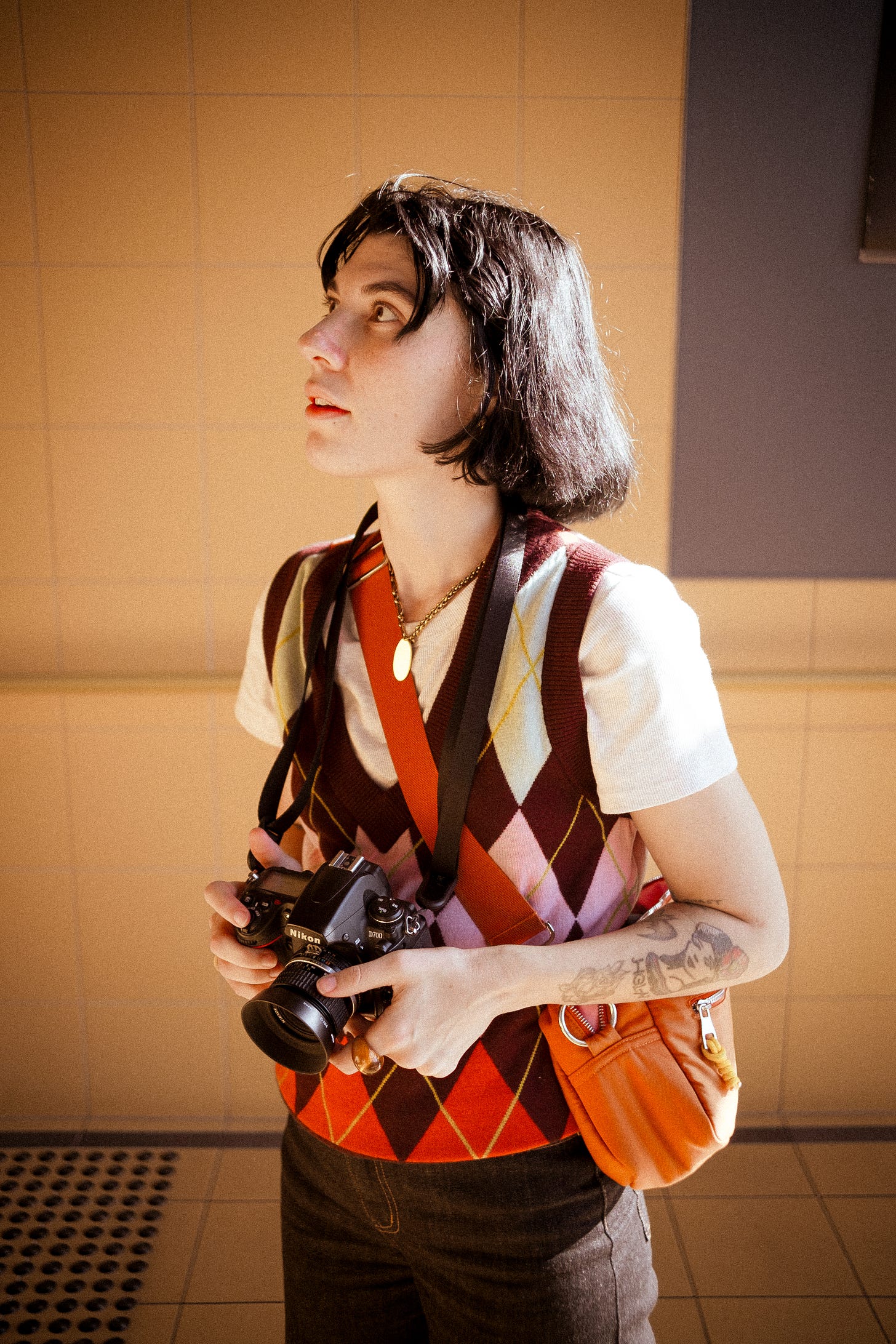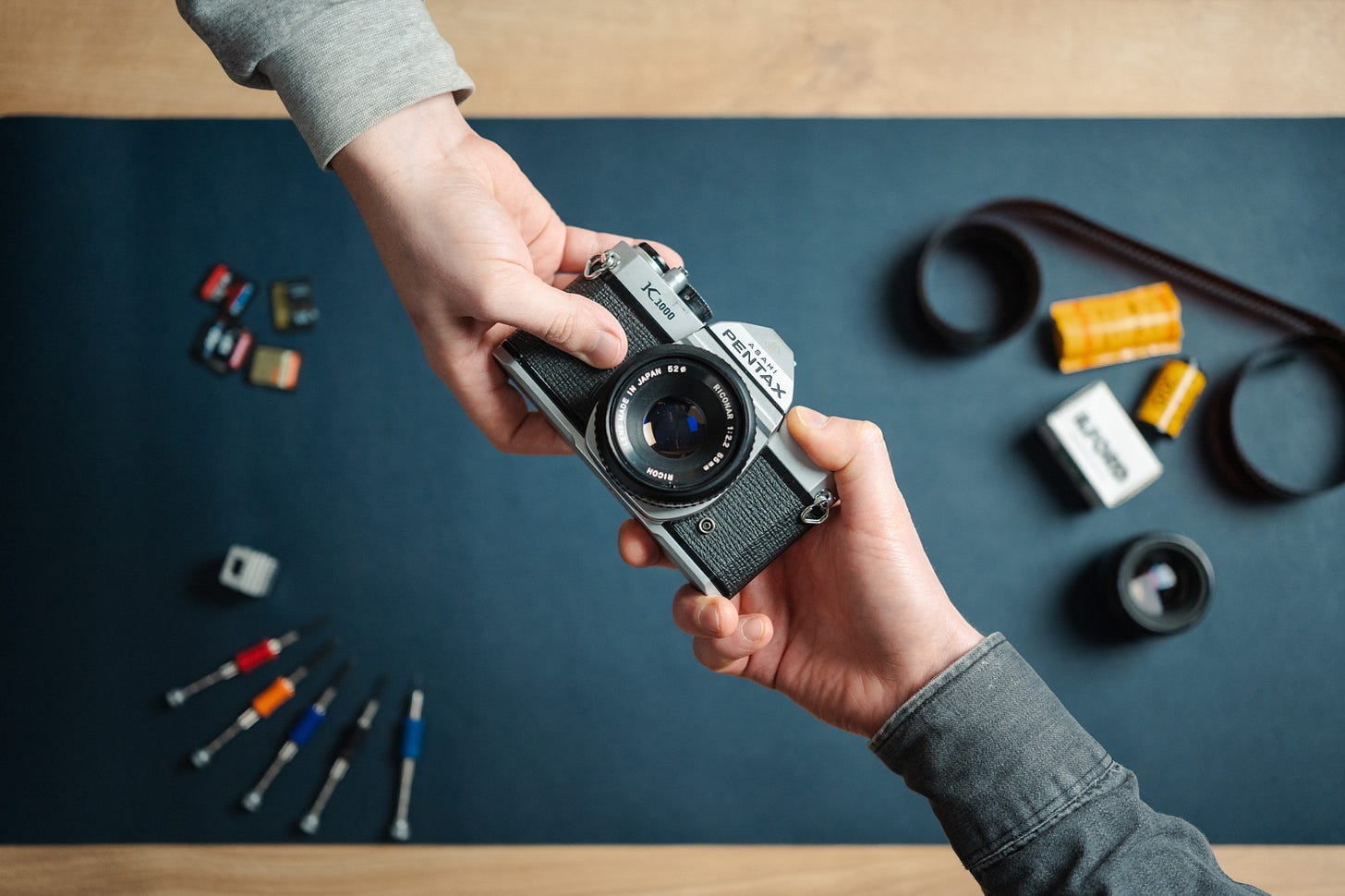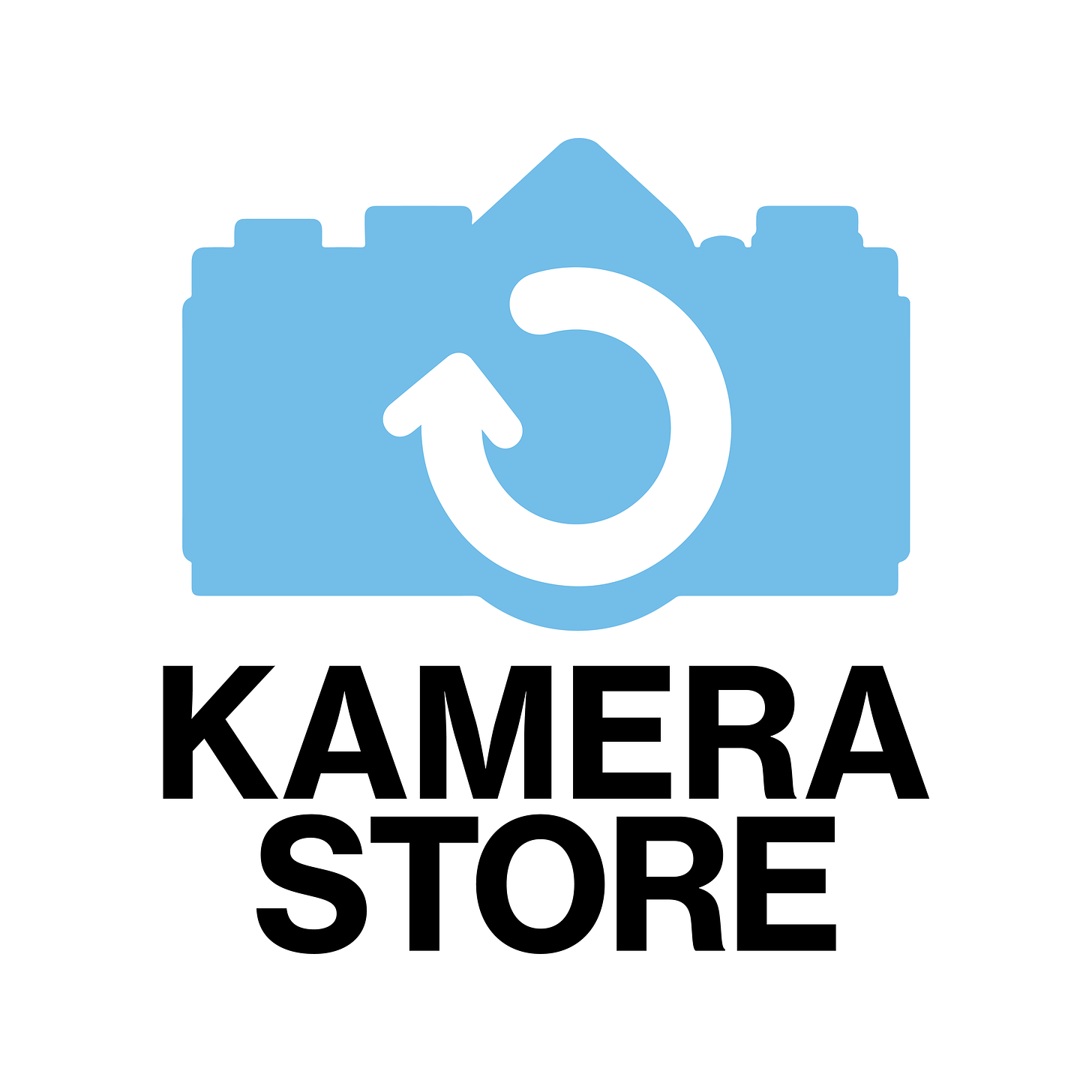Hello Substack friends,
This week I’m giving you an exclusive sneak peek at some photos and thoughts on a focal length I’m playing around with that will feature in an upcoming YouTube video!
I’m once again being supported by the lovely people over at Kamerstore who repair, restore and sell analog cameras right here on their website. If you are in the market for some new gear then Kamerstore is the place to get it. “Restored” condition cameras have a 12 month warranty and total transparency of the condition gives you all the confidence you need to happily purchase that next dreamy film camera.
When was the last time you really challenged yourself creatively?
I really don’t like wide angle lenses.
It puts more stuff in the frame when I want less and it feels literally wrong to me to even look through the viewfinder when I have a wide angle lens attached. It almost gives me the ick to be honest.
I’ve tried in the past to get over this and whilst I’ve sometimes enjoyed a fish eye lens for a commercial shoot or seen the beauty in a wider angle in others work, I just never personally vibed with it.
I try and implement a strategy in my creative practise where I go against my natural instincts or what feels comfortable for fear of becoming stuck in a rut or losing sight of what creativity really means… which to me is evolving, and finding new ways of seeing the world.
So if I’m like “ohhhh 28mm, no thanks” I’ll push myself to just shoot with it and be open to the experience and results.
Why I Think We Shy Away From Challenging Ourselves
When we land on a style or piece of gear we enjoy using, or better yet we get great results with, we tend to become tied to it. This is normal.
By always using a camera that you feel confident with you will greatly reduce the likelihood of an unexpected outcome. Now this might be exactly what you want and I don’t fault you for that at all.
When I shoot with my Canon Rebel G and a 40mm pancake lens (a focal length that feels similar to how we see the world naturally) I know exactly what most images will look like. I can be shooting and see the result in my mind, I feel at one with that thing and it gives me a boldness that I really need when doing paid work.
It doesn’t necessarily make me feel excited to be a photographer though and I’m not sure it makes me a more creative one either. It makes me on autopilot, which in some situations is great because I can focus on the shoot, subject, brief or just be lazy and enjoy myself. All of which are things that I advocate for you and me.
But, sometimes we need to take on a challenge to be put back in our place or reminded of how different the process can be and for me that’s shooting with a wider angle. Going wide makes me feel like years have been shaved off my photography career, like I’m doing it for the first time because it feels foreign to me, which leads to a hyper awareness of the act of creating.
Suddenly I have to really think and question and work out how I’m going to approach the scene based on this new focal length. That’s where the creativity happens though.
When we are so sure what we will capture and how it will look we remove the magic and we become passive.
We can also become used to getting good results and I’m not sure that’s entirely healthy for an artist either. We need to suck sometimes to be good.
Social media really squashes that hunger for a creative to get outside their comfort zone too because it rewards sameness and staying in a box or niche.
We are risk averse generally as humans normally, we favour predictability and routine so we must actively push ourselves to do something that feels wrong.
So instead of asking yourself “what’s my favourite focal length?” ask yourself “which is my least?” and then go and shoot with that!

Further Benefits That Come From Creative Challenges
There are some unexpected benefits that occur when you step outside your comfort zone so if you aren’t yet convinced, keep reading…
You will have a newfound appreciation for the way others create - for example whenever I shoot medium format I’m always amazed at how some photographers are able to make that work for them because I find it so challenging. The same goes with instant film. I like to regularly dip a reluctant toe in these format pools in order to remind myself that it’s not all just point and shoot and direct flash when it comes to photography.
It may uncover a new style or way of seeing - in my most recent experience I was surprised by how getting close up with a wide angle lens gave a cool look that still felt like my work but with a new flavour. This is why a challenge is the perfect remedy if you are feeling stuck or unmotivated.
Even if you really hate and have seemingly learned nothing, you’ve actually learned that your preferred gear, style, subject etc. is in fact your zone of genius and you can carry on with confidence knowing you aren’t missing out on some other format or style that may have been calling to you. That’s a win win in my book.



This 28mm challange was also accompanied by yummy Japanese food and a movie with Lux. Perfect combo. A challenge gives you a purpose and purpose leads to action
We all wrestle with feelings of inadequacy, frustration and a block to our creativity and a challenge can come in great handy because it sets our mind and body into action!
Action is the antidote to pretty much everything if you ask me. Inaction is the enemy so we need to find things that put us in action mode and get us excited to be creative.
Small challenges just set for us by us are a great way to be curious again. In fact the challenges I set for myself are often for a video and I find that sharing the results makes me ten times more motivated to take action. Maybe that’s the same for you too?
Whatever it is that gets you out and about taking photos and interacting with your creativity is a positive.
Just as we discussed a few weeks ago about finding constraints and letting them dictate your work and direction a challenge can be applied just the same way.
Borrow some gear or grab yourself something new-to-you from Kamerastore to get excited about and get creative with your constraints and challenges. That in itself is a form of creativity!

One of my favourite shots from the challenge. Stay tuned over on YouTube for the full video coming next month! If you are looking for more creative inspiration, particularly when it comes to sharing your photography in an offline capacity then check out the latest video on my second channel. I’m sharing more broadly about creativity over there so it’s a place for artists to come and feel like they have a weekly source of inspo and advice. If that sounds like your thing then subscribe and follow along :)
If you’ve ever tried to navigate the world of vintage film cameras, you will know that it can be a very confusing and risky endeavour to find something that actually works. That’s why I recommend checking out Kamerastore if you’re in the market for a film camera, as theirs have all been professionally tested using film-era equipment.
Very often older cameras will have issues with things like inaccurate metering and shutter speeds so the experts at Kamerastore test and check everything to make sure all functions are working properly. They even do an 11 step cleaning process and make repairs if needed before placing their cameras for sale. You get a full detailed description of the condition of your camera so you know exactly what you’re getting when you buy from them.
They offer up to a 12 month warranty on restored film cameras, so you really can’t beat that for peace of mind. Whether you’re looking to buy, sell or trade, go straight to Kamerastore and join the 40k other film enthusiasts who have used this trusted service. Click the button below and you’ll get 10% off your next purchase with Kamerastore - no code needed.








I’ve heard musicians I love say they are the most creative when they have limitations. It’s when we have a buffet of choices we’re the least creative.
Thank you for your insightful discussion on the topic of creative challenges. I concur with the notion that photographers often benefit from a periodic stimulus to foster fresh perspectives or to overcome creative stagnation. However, the constraints of time frequently pose an obstacle. Having recently retired from full-time employment, I now find myself fortunate to have ample time to dedicate to photographic endeavours. Activities such as experimenting with a borrowed lens or exploring less visually stimulating areas of the city with my camera are pursuits I am now able to enjoy.
For individuals with limited time, I would propose incorporating minor creative challenges into their regular photography sessions. With some strategic planning, it is possible to introduce brief yet meaningful exercises. For instance, one might dedicate 15 minutes of a portrait session to exploring intentional camera movement, or integrate self-portraiture during a landscape expedition. Even the cognitive effort involved in approaching a familiar shoot with a novel concept can yield valuable insights. Personally, I embarked on my first video project during an urban landscape shoot.
Creative challenges need not be overwhelming; they can be seamlessly integrated into existing routines by adopting a slightly altered perspective.